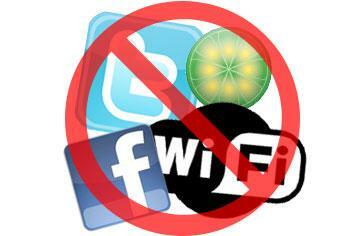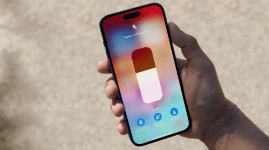5 tech-based bad habits to give up for Lent
Lent started last week, and if you haven't been doing too well at abstaining from chocolate or sugar puffs, then try kicking one of these unseemly tec

Lent started last week, and if you haven’t been doing too well at abstaining from chocolate or sugar puffs, then try kicking one of these unseemly tech addictions.
1. Downloading music illegally
Come on, it’s not 2005 now, is it? There are plenty of legal ways to get your music fix without stealing it. You know how shonky the music you snaffle from P2P and bitTorrent sites can be. Why waste your time downloading music that might not even be listenable?
There are plenty of free or great value options out there right now. Spotify‘s free service is brilliant, and if you don’t like the ads, or – even better – want to get it on your mobile, their premium service is just £10 a month. We7 is also pretty similar but just runs in your browser. For £4 a month you can get rid of the ads, and there’s an iPhone and Android app coming soon.
2. Facebook stalking
We’ve all done it, but frankly you’re starting to get a little creepy now. If you’re looking for love then why not dial down your fixation and broaden your social horizons?
Why not sign up to a service like MySingleFriend.com? It lets you connect with others looking for a date, and all the profiles are written by friends (you do still have some of those, don’t you?). You might even find some hot friends-of-friends that you haven’t been introduced to yet. Think of it like facebook for dating and you’re on the right track. You can sign up for free to take a look around before committing to the full membership.
3. Tweeting rubbish
Yes, we know there’s a precedent, but try to resist the urge to tell the world about your love of lemon curd. Have a think about it – what do you find interesting in other people’s tweets?
Links, photos (not breakfast-related) and retweets all add more colour to your feed and mean that you’ll get more followers (call them friends if you really want). Try to share the good stuff with people, and search out other people who share good stuff too, but be sure to add a bit of your own personality.
4. Taking lots of crap photos
Digital photography has revolutionised the way we take pictures – we can now experiment a lot more without having to pay for all that expensive film and processing just to find out that yes, we left the lens cap on again. While experimentation is a great way to get better it doesn’t mean you should just take snaps willy-nilly, Austin-Powers style.
Take a moment to think about what you’re shooting and then frame your shot properly. If you want to take it a bit further, sign up for a newsletter like the one from digital-photography-school.com for some handy tips and ideas.
And when you’ve taken those photos, be ruthless when you save them – delete all the ones that aren’t any good. Remember, no-one wants to see eight blurry variations of the same photo on Facebook.
If you’re using your phone to take photos, try out Hipstamatic for iPhone, Camera ZOOM FX for Android, or Photoshop Mobile.
5. Cafe-hopping for free WiFi
Just because it’s free, doesn’t mean it’s good. If you spend a lot of time out and about with your laptop, there’s only so many double-shot skinny latte macchiatos you can drink. Free WiFi hotspots can be hugely unreliable and sitting in MacDonalds probably isn’t the best environment for getting stuff done.
Unshackle yourself from your wireless chains and buy yourself a 3G mobile broadband dongle. With a pay-as-you-go tariff you only pay for what you use, and it means you can use it anywhere so next time it’s sunny outside you can check your emails in the park. This T-Mobile broadband dongle is just £20, then £2 for a single day’s unlimited surfing, and gets cheaper the more you use it.



